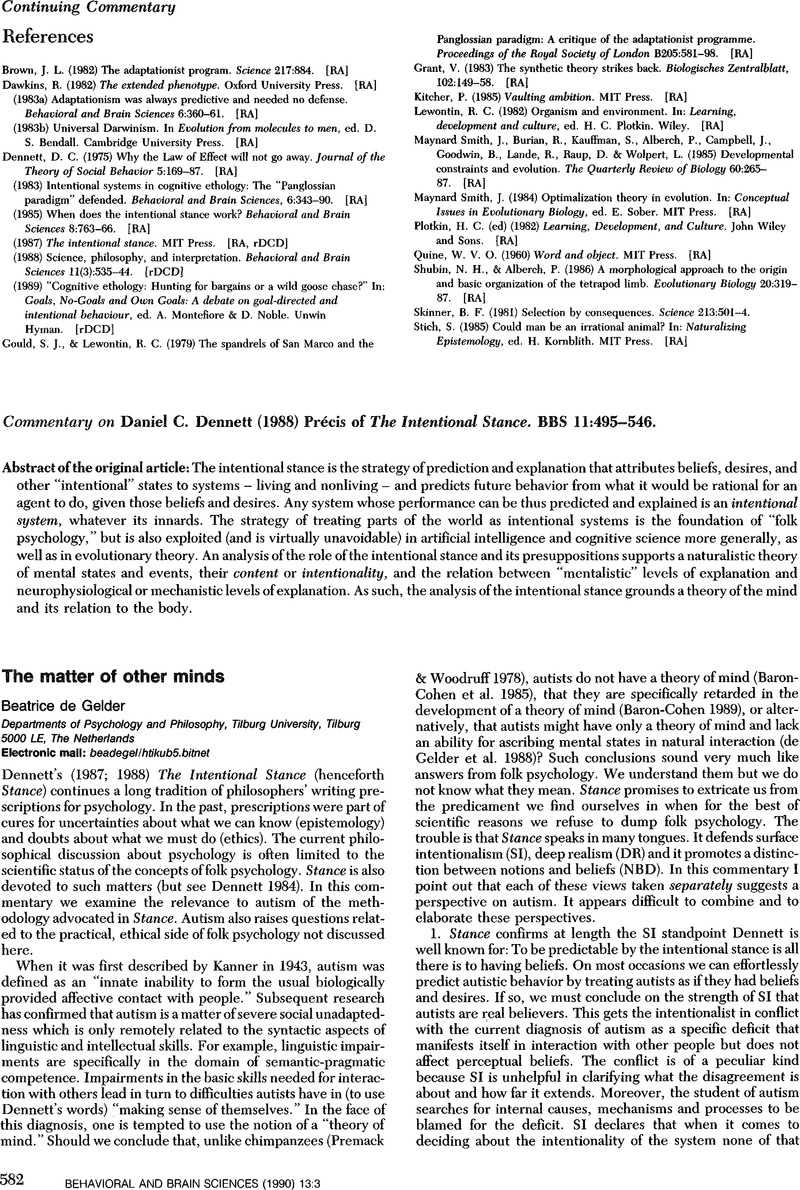Crossref Citations
This article has been cited by the following publications. This list is generated based on data provided by Crossref.
Gelder, Beatrice de
Vroomen, Jean
and
van der Heide, Lucienne
1991.
Face recognition and lip-reading in autism.
European Journal of Cognitive Psychology,
Vol. 3,
Issue. 1,
p.
69.
Gérardin-Collet, V.
2000.
Autisme et théorie de l'esprit: une version ≪ naturelle ≫ du paradigme des marionnettes.
L'Évolution Psychiatrique,
Vol. 65,
Issue. 4,
p.
727.



